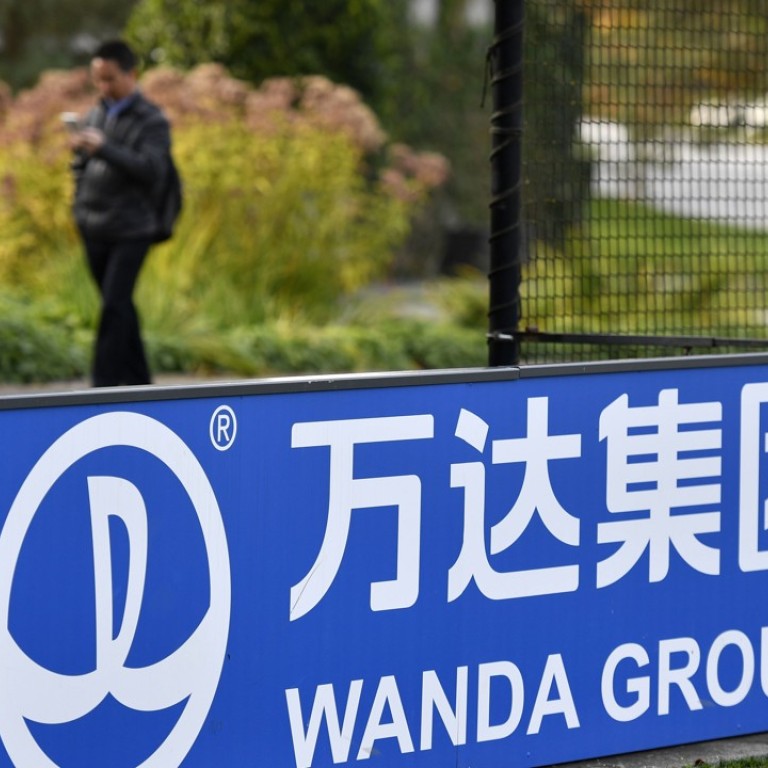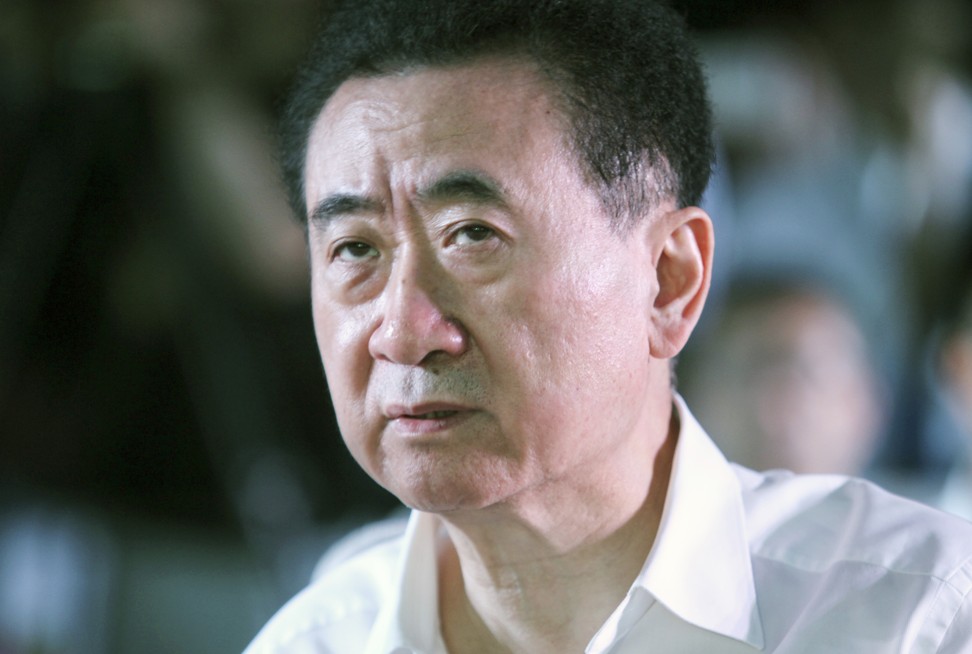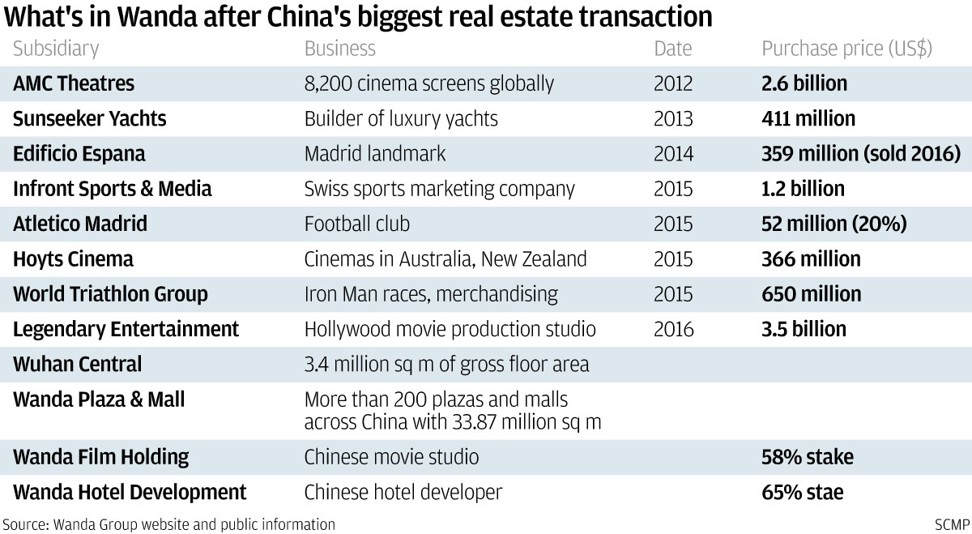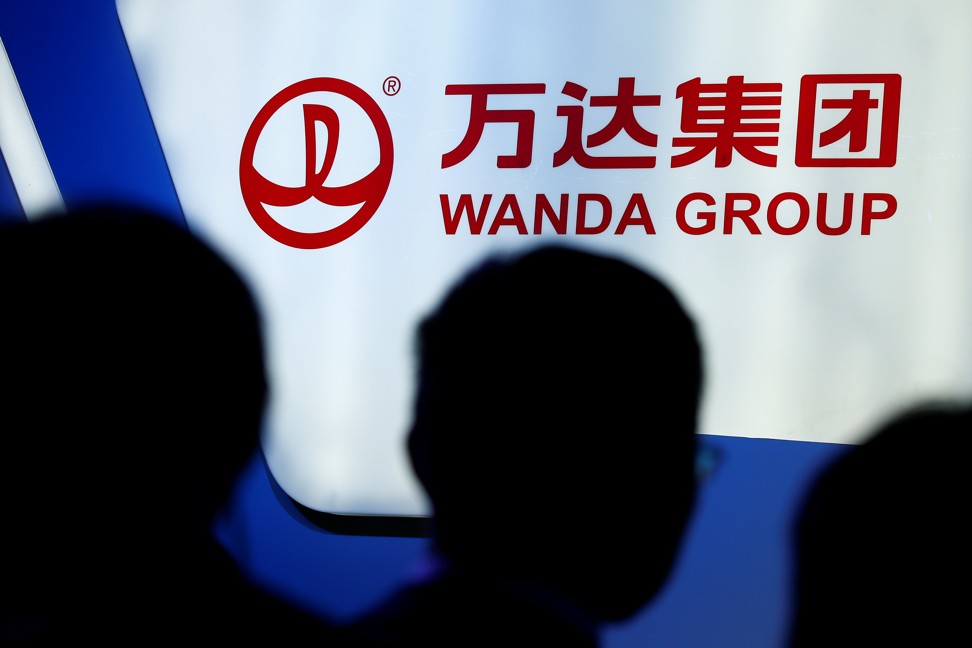
China puts Wanda under spotlight, closes off loan options for breaching investment rule
China’s bank regulator has instructed the country’s largest state-owned lenders to put six of magnate Wang Jianlin’s overseas acquisition projects under an unprecedented level of scrutiny, because they have touched a red line concerning foreign investments, according to several sources familiar with the matter.
China’s bank regulator has instructed the country’s largest lenders to put six of magnate Wang Jianlin’s overseas acquisitions under the spotlight for touching a red line on foreign investments, according to several people familiar with the matter.
Banks are to cut off funding and reject any applications for financing, foreign currency exchange, or restructuring on six purchases by the tycoon’s Wanda Group, four of which have already been completed, based on verbal instructions delivered at a June 20 meeting summoned by the China Banking Regulatory Commission in Beijing, according to sources familiar with the briefing.
Some of the acquisitions were made by Wanda’s AMC Entertainment Holdings unit, which the Chinese company bought in 2012. They include the US$930 million acquisition announced in January for the Nordic Cinema Group, and the US$1.1 billion purchase of Carmike Cinemas, the fourth-largest American cinema operator.
They also cover Wang’s acquisition of the yacht maker Sunseeker International, the Hollywood studio Legendary Entertainment, AMC itself, and Odean & UCI Cinemas Group, The Wall Street Journal reported separately.
The restrictions “come as the probable result of last month’s decision to evaluate potential system risks from China’s recent offshore M&A binge,” said Brock Silvers, managing director at Kaiyuan Capital in Shanghai.

Chinese banks are instructed to not lend any money to the four acquisitions that have closed, according to a summary of the briefing.
Those projects are forbidden from being injected into any of Wanda’s China-listed companies, and Wanda is barred from injecting any funds, or conducting any form of financial restructuring involving these assets, if they encounter operational difficulties.
The unprecedented instructions would close off any available avenue of financing for the highly leveraged Wanda, which may have contributed to Wang’s decision last week to sell the majority of his hotel and theme park holdings -- including a Harbin park that he’d opened barely two weeks earlier -- to Shanxi magnate Sun Hongbin for US$9.3 billion, in what would turn out to be the largest single real estate sale in China’s corporate history.
“Wanda is in a lot of trouble,” said Shaun Rein, founder of the China Market Research Group. “ It remains to be seen how much of their growth was built on real asset development with cash flow and how much purely on borrowing money.”
Wang could not be reached to comment. A Wanda Group spokesman in Beijing declined to comment.
Wanda, founded in 1988 by Wang in the coastal city of Dalian, has evolved into one of China’s biggest asset buyers around the world, in the process turning the 62-year-old former soldier into the country’s wealthiest businessman.
Through a string of offshore acquisitions that began in 2012, Wanda is now the world’s largest cinema operator, owning 8,200 screens all over the globe. It’s also bought a yacht builder, a Spanish football club, a Hollywood movie studio, a string of shopping malls, hotels and theme parks across China, and the global rights to the Iron Man triathlon races.

That may have raised the ire of the ruling Communist Party, which was conscious about projecting an image beyond reproach in President Xi Jinping’s campaign to crack down on corruption, influence peddling and any form of financial misconduct.
“People forget that businessmen need to ensure they are low profile, and always give credit to the Communist Party first,” said Rein of China Market Research Group. “Sometimes as these guys get richer, they forget who’s really in charge.”

To be sure, Wanda wasn’t the sole Chinese company to be put under the spotlight. The Anbang Group, Fosun Group, HNA Group and a Zhejiang-based company called Rossoneri Sport Investment have also been singled out for scrutiny, based on the June 20 briefing.
Of the six Wanda acquisitions singled out by the bank regulator, four are for cinemas overseas, which would dent Wang’s ambition to control one in every five of the world’s cinema screens by 2020.
The Nordic Cinema Group owns 664 screens in 118 cinemas in Sweden, Finland, Norway, Estonia, Latvia and Lithuania, while Carmike Cinemas, the fourth-largest American cinema operator, operates 2,954 screens in 41 US states.
Wanda Commercial was delisted in Hong Kong on September 20 last year. Wang promised investors he’d list the developer’s assets on an exchange in mainland China, where the Shanghai bourse trades at a price-earnings ratio that’s four times higher on average than its stock in Hong Kong.
S&P Global Ratings on Monday placed the company’s BBB- long term corporate credit rating on watch, with negative implications.
“We placed the ratings on CreditWatch to reflect the risks that Wanda Commercial’s unexpected sale of its tourism projects and hotels could weaken its business position and have an uncertain impact on leverage,” according to the agency.
With reporting by Summer Zhen in Hong Kong, Zheng Yangpeng in Beijing.

